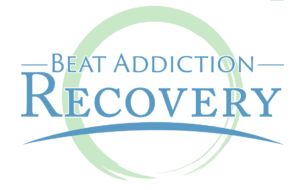Image credit: Unsplash
Source: https://images.unsplash.com/photo-1576014131795-d440191a8e8b
Addiction is a tough battle to fight, and often, it can’t be done alone. In fact, the less time you spend with others by your side, the more your habits worsen. Research from the University of Miami on loneliness and mental health showed that feelings of isolation and loneliness were associated with more instances of severe alcohol and drug use. This issue shows why other people have long been a significant part of recovery for those struggling with substance abuse. Our blog post called “9 Ways To Beat Addiction” lists support systems as one of those methods. When your mental state is fragile, or you need someone to prevent you from returning to your old ways, they can guide you.
Fortunately, there are many ways to find a community or a source of motivation that can give you the help you need. Here are a few:
Connect with family and friends
Loved ones often experience struggles when it comes to aiding a relative or friend experiencing addiction. A study from the University of Saskatchewan found that caregiving for an individual undergoing addiction led to various mental health impacts such as depression, anxiety, and shame. People trying to recover may find it challenging to connect with their loved ones out of guilt for these reasons, but family and friends are still integral to healing. Showing you are committed to changing and that they can be a big help may allow them to provide support and guidance as you recover. They can keep you on track, hold you accountable for your actions, and provide love and compassion when you feel at your lowest.
Look into your community and organizations
Connecting with family and friends might be too overwhelming or stressful for some. Fortunately, there are also many other places you can seek support in. The community you’re in or the organizations you are a part of can support you during your recovery. Trusted neighbors can watch over your home or lend you some home essentials while you try to find ways to heal. They might be the closest people to you who can give you some guidance. Organizations like clubs and churches can also be a sound support system that can offer encouragement, motivation, and resources to continue your healing journey.
Listen to podcasts
Support doesn’t always have to come from someone you know. You can be inspired by stories of people who have gone through and overcome similar struggles and can follow in their footsteps. For example, there are plenty of great podcasts on Scribd, such as Recovery Elevator and The Addiction Psychologist. Podcasts are a great way to stay connected to the world around you and an accessible, friendly way to engage with sensitive topics across the spectrum of human interest. Another benefit is that many of them are designed to sound like an informal discussion, making you feel like you’re listening to a conversation between old friends — which can provide a sense of comfort and healing.
Join support groups
Though you may have people around you offering help, it may be hard for them to truly understand how you feel and what you’re going through as you go through or recover from addiction. Specific support groups of people undergoing similar struggles have helped people for many years and acted as a stepping stone to healing. Groups like Alcoholics Anonymous and Narcotics Anonymous are some of the most notable names in this field. Nowadays, you don’t need to attend in-person meetings to receive the help you need. Online support groups such as SMART Recovery or LifeRing offer online meetings and forums that can connect you to people on a similar path as you. It can broaden your horizons and open you up to interventions and solutions for issues you’re facing that you may not have had access to before.
Article written by Roxanne James
Exclusively for

